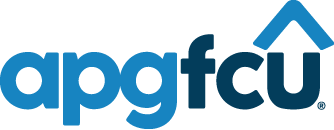The economic fallout of the COVID-19 pandemic has resulted in mortgage rates hovering over record lows, which means it’s a great time to save by refinancing. In 2020, research showed 43% of 30-year mortgage holders, or nearly 19 million borrowers, qualified to save an average of $297 every month by refinancing to a lower rate. Their eligibility is based on three factors: A credit score of 720 or higher, at least 20% equity in their home and the ability to reduce their monthly interest payments by 0.75% through refinancing.1
With rates this low, savings potential this high and the possibility of a rate spike any day, borrowers must be knocking down the door to refinance, right? On the contrary, a study found 80% of mortgage holders remain on the sidelines of refinancing and 27% don’t even know their current rate.2
Of the mortgage holders who have yet to refinance, over a third report being unsure if refinancing is worth it as a reason for their hesitation.3 Borrowers also cite high fees and closing costs, unsatisfactory rate quotes and thinking they would not qualify for a refinance.
Refinancing a mortgage should be carefully considered, as it can be a lengthy and costly endeavor. However, as a rule of thumb, refinancing may be a good idea if your monthly savings offset the cost of refinancing and you plan on remaining in the property for years to come.
Tip: To calculate your breakeven point for savings versus closing costs, divide your closing costs by your monthly savings. For example, if refinancing will save you $190 per month and your closing costs and fees were $3,000, you would need to remain in the home for nearly 16 months ($3000/$190) to break even.4
Ultimately, refinancing your home loan depends on your current financial profile and goals to enhance your economic position. As a starting point, it is beneficial to understand your current interest rate. This will allow you to determine if you are happy with it or if obtaining a lower rate is feasible. Either way, getting to know the rate you are paying every month will provide insight into your payment breakdown and how your rate compares to others.
To help you make this decision, here are the top reasons to consider a mortgage refinance:
Lower Interest, Higher Savings
Homeowners with a higher interest rate may consider refinancing their rate, term or both to save more. While refinancing to a home loan with a lower rate or a shorter term will help you save on interest, a “rate-and-term” refinance allows you to save on interest and pay off your loan faster. However, this may end up increasing your monthly payment.5
If your budget allows, reducing your interest payments, shortening the life of your loan or both will help you save on interest and put more money toward the principal of your loan.
Eliminate PMI
Private Mortgage Insurance (PMI) acts as a safety net for lenders whose borrowers put down less than 20% on a new home. PMI adds costs to your monthly payment to protect your lender in the event you default on your mortgage. Typically, borrowers will continue paying PMI until their mortgage balance reaches 78% of the original purchase price, at which time, the lender is required to terminate the insurance.6
However, refinancing to a loan type that does not require PMI is a viable option to eliminate the payment. Remember, you will likely need to reach 20% equity in your home before saying “goodbye” to PMI.7
Pay Down Debt
Those who have substantial high-interest credit or personal loan debt may consider a “cash-out” refinance to improve their cash flow and consolidate debt. With a cash-out refinance, you can apply for a new loan with a higher balance than your existing mortgage. You can then take advantage of the difference between the two mortgage amounts by withdrawing it in cash to put toward your debt.8
This option can be beneficial to homeowners who have substantial equity in their homes. While it might increase your interest rate, a cash-out refinance can give borrowers a boost to get out from under debt.
Visit our mortgage page to view current rates and to apply for a home loan.
1https://www.forbes.com/advisor/refiroadmap/
2https://www.bankrate.com/mortgages/refinance-survey-november-2020/
3https://www.forbes.com/sites/advisor/2020/10/12/heres-the-no-1-reason-people-dont-refinance-their-mortgages/?sh=5e4a4d32e50c
4https://www.bankrate.com/mortgages/when-to-refinance/
5https://www.investopedia.com/terms/r/rate_and_term_refi.asp
6https://www.bankrate.com/mortgages/removing-private-mortgage-insurance/
7https://www.bankrate.com/mortgages/best-worst-reasons-refinance/
8https://www.bankrate.com/mortgages/cash-out-refinancing/
